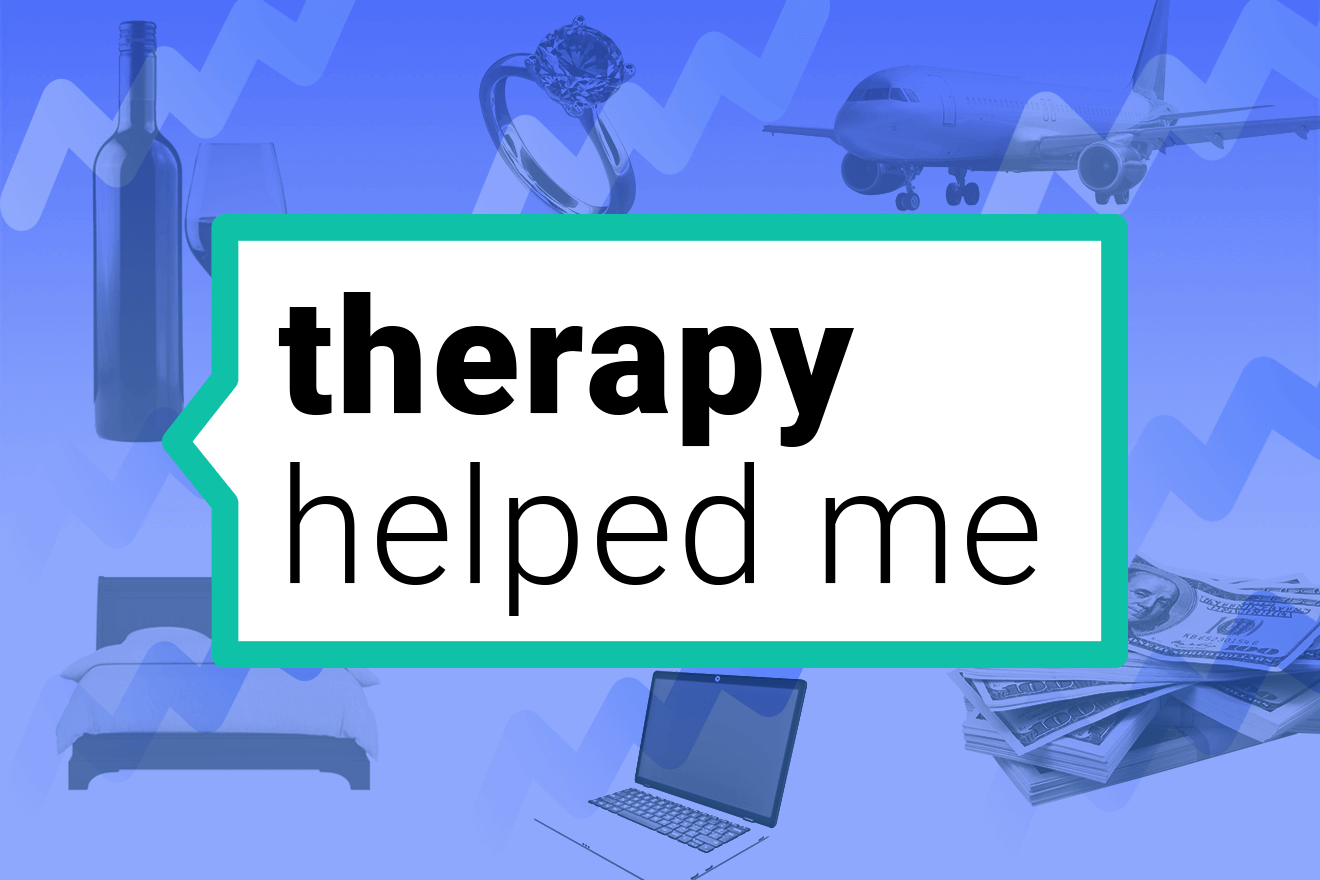Updated on 12/23/2022.
While there are many benefits of therapy, that doesn’t mean every therapist will be a good fit for your personality and needs. That’s OK. Maybe you feel like you’ve outgrown your current therapist, or you might want to see someone who specializes in a specific type of therapy, or you might not “click” with someone you’ve been trying to get help from. You might even have a bad therapist that could be unreliable, judgmental, or culturally insensitive. Either way, it doesn’t matter your reason for wanting to find another therapist; the important part is realizing that it’s time for you to start on a different path.
Regardless of why you’ve decided to “break up,” you should be proud that you’re taking steps to improve your mental health. Ending a therapeutic relationship that isn’t working will allow you to find support that better suits your needs whether it’s in online therapy or traditional therapy.
This how to break up with your therapist template is the resource you need to guide you through the process.
1. Reflect on the Decision to Breakup
Before you decide to move on from a therapist you’ve been seeing, take the time to consider if the relationship is salvageable. If you like and trust your therapist but don’t feel like they’re currently meeting your needs, you may want to first try communicating your issues and look for solutions. The right therapist might be willing to work with you to improve the relationship.
With that said, it’s always important that you trust your instincts. If you’re not comfortable with any medical professional, from a doctor to a mental health professional, you’re not obligated to talk things over with them before you move on. The right therapy, and therapist, can be beneficial for most people, but it’s always OK to stop seeing someone who’s not serving or helping you.
2. Get to the Root of What’s Not Working
If you’ve been stressed trying to figure out how to break up with your therapist, it can be helpful to try and figure out why the relationship isn’t working.
Reflecting on the aspects of the relationship that aren’t rewarding can help you build better relationships with therapists in the future.
“The relationship between client and therapist is based on trust, respect, and results. If you feel that something is not working or you’re not seeing the expected effects, it’s important to evaluate if you want to continue, and then share your thoughts with your therapist.”
– Talkspace therapist Cynthia Catchings, LCSW-S, LCSWC, CFTP
Thinking about the following can help you make sense of your thoughts and feelings. For example, you might want to ask yourself things like:
- What are my goals for the future?
- Why isn’t my current therapist helping me meet these goals?
- Do I feel comfortable talking to my therapist?
- Do I see therapy as a safe space?
- How do I feel after my sessions?
- Does my therapist respect my cultural identity?
It can sometimes help to write down the answers to questions like these in a journal. Journaling for mental health is a proven technique that can enhance self-reflection and might help you understand why you’re making important life decisions. Analyzing your feelings can help you feel more confident (and comfortable!) as you begin talking with your therapist.
3. Be Prepared for the Conversation
Telling your therapist that you want to stop seeing them can be nerve-wracking, even if you’re absolutely sure that you’re making the right decision. Thinking about what you want to say and what questions to ask a therapist is one way to help ease some of that anxiety.
“Writing down your thoughts and feelings can make it easier to communicate with your therapist. If needed, you can practice reading or repeating what you wrote before your next session. This can help you feel better prepared.”
– Talkspace therapist Cynthia Catchings, LCSW-S, LCSWC, CFTP
Don’t feel pressured to communicate things that you’re not comfortable sharing. This decision is for your benefit, and it’s up to you to decide how much you want to explain. Your therapist is a professional; you’re not required to protect their feelings or get permission before you end the relationship.
Can I break up with my therapist through email or text?
Some people find it incredibly beneficial and helpful to unpack their feelings with their therapist, especially if they’ve been seeing them for a long time. That said, it’s perfectly fine to send a text or an email if you feel that the conversation is going to be too much.
You do not have to meet with your therapist in person, especially if you are struggling with a specific issue that’s made you uncomfortable. A wrap-up session with your therapist can be useful, but it isn’t mandatory when changing therapists.
4. Be Completely Honest with Your Therapist
There’s no need for you to make excuses or try to “soften the blow” during the conversation. If you want to talk to your therapist about why your relationship isn’t working, try to be as honest as possible, as long as you still feel safe in the conversation. Therapeutic relationships end all the time, and any experienced, professional therapist will be able to accept your news without taking things personally.
It’s critical to understand that if you feel like your therapist has harmed you, you can express your feelings (again, assuming you feel safe) — you don’t have to hold anything back. On the flip side, if you’ve benefited from therapy but are just ready to move on, for any reason), it’s OK to provide positive therapist feedback. Remember, this conversation is for your benefit, and the discussion should be on your terms when ending therapy.
5. Stay Firm in Your Boundaries & Decision
Part of figuring out how to break up with your therapist is establishing boundaries for the conversation. Think carefully about what you’re comfortable with and how you’d like the discussion to go.
You may want to bring up these boundaries at the beginning of the session. For example, you could let your therapist know that your goal is for the conversation to be supportive or that there are certain topics you don’t want to discuss. If your therapist isn’t respecting any of your boundaries, it’s OK to end things at any time.
“Learning to set boundaries is one of the main principles of therapy. Once you decide what is better for you, stay firm and remind yourself that your therapist will respect your decision.”
Talkspace therapist Cynthia Catchings, LCSW-S, LCSWC, CFTP
6. Listen to Suggestions and Constructive Feedback
At some point during the discussion, your therapist may offer you suggestions or feedback. If you truly feel the relationship has been positive and the honest feedback will be primarily constructive, you may want to take their input into consideration. A collaborative conversation could leave you feeling more prepared for what comes next.
7. Have Next Steps in Place for Your Mental Health
If you’ve been wondering how to break up with my therapist in a healthy way, you should think about what comes next. Don’t hesitate to ask your therapist for recommendations or a referral. For example, if part of the reason you want to find a new therapist is you need a mental health professional with a specific skill set, your current therapist may be able to point you in the right direction.
Of course, if you’re unhappy with your therapist or feel like they don’t respect your needs, you’re not under any obligation to follow up on the recommendations. Trust your instincts and do what’s best for your well-being — after all, your whole mental health care journey has been about becoming the best version of you.
8. Practice Self Care
Breaking up with your therapist can be difficult, which is why you must prioritize your needs and your mental health throughout the process. Self-care is a great way to balance and manage stress in your life. Focusing on working out, meditating, journaling, and eating and sleeping well can all help.
If you’re struggling with negative thoughts as you navigate this time in your life, it can be helpful to acknowledge and label them. According to studies conducted by McMullin (2000) and DeRubeis et al., (2010), clients are encouraged to replace maladaptive cognitions with more realistic or positive ones.
Finding a New Therapist with Talkspace
With the help of this guide, you’ll be able to end a relationship with your current therapist and find someone who can better serve and meet your needs.
Need help finding a good therapist? Talkspace’s therapy platform makes it easy to get matched with an online therapist who has the qualities, skills, and experience you’re looking for. Seeking out a mental health care professional who can guide you on your mental health journey has never been easier. Get started with Talkspace today.
Sources:
1. Saxon D, Firth N, Barkham M. The Relationship Between Therapist Effects and Therapy Delivery Factors: Therapy Modality, Dosage, and Non-completion. Administration and Policy in Mental Health and Mental Health Services Research. 2016;44(5):705-715. doi:10.1007/s10488-016-0750-5. https://www.ncbi.nlm.nih.gov/pmc/articles/PMC5550525/. Accessed October 16, 2022.
2. Cook J, Simiola V, McCarthy E, Ellis A, Stirman S. Use of reflective journaling to understand decision making regarding two evidence-based psychotherapies for PTSD: Practice implications. Practice Innovations. 2018;3(3):153-167. doi:10.1037/pri0000070. https://www.ncbi.nlm.nih.gov/pmc/articles/PMC6426332/. Accessed October 16, 2022.
3. Kelly J. Your Best Life: Managing Negative Thoughts—The Choice is Yours. Clinical Orthopaedics & Related Research. 2019;477(6):1291-1293. doi:10.1097/corr.0000000000000791. https://www.ncbi.nlm.nih.gov/pmc/articles/PMC6554130/. Accessed October 16, 2022.
4. McMullin, R.E. (2000). The new handbook of cognitive therapy techniques. Norton. DeRubeis, R.J., Tang, T.Z., Webb, C.A., & Beck, A.T, (2010), Cognitive therapy. In K.S. Dobson (Ed.), Handbook of cognitive-behavioral therapies (3rd ed., pp. 277-316). Guilford.
Talkspace articles are written by experienced mental health-wellness contributors; they are grounded in scientific research and evidence-based practices. Articles are extensively reviewed by our team of clinical experts (therapists and psychiatrists of various specialties) to ensure content is accurate and on par with current industry standards.
Our goal at Talkspace is to provide the most up-to-date, valuable, and objective information on mental health-related topics in order to help readers make informed decisions.
Articles contain trusted third-party sources that are either directly linked to in the text or listed at the bottom to take readers directly to the source.




